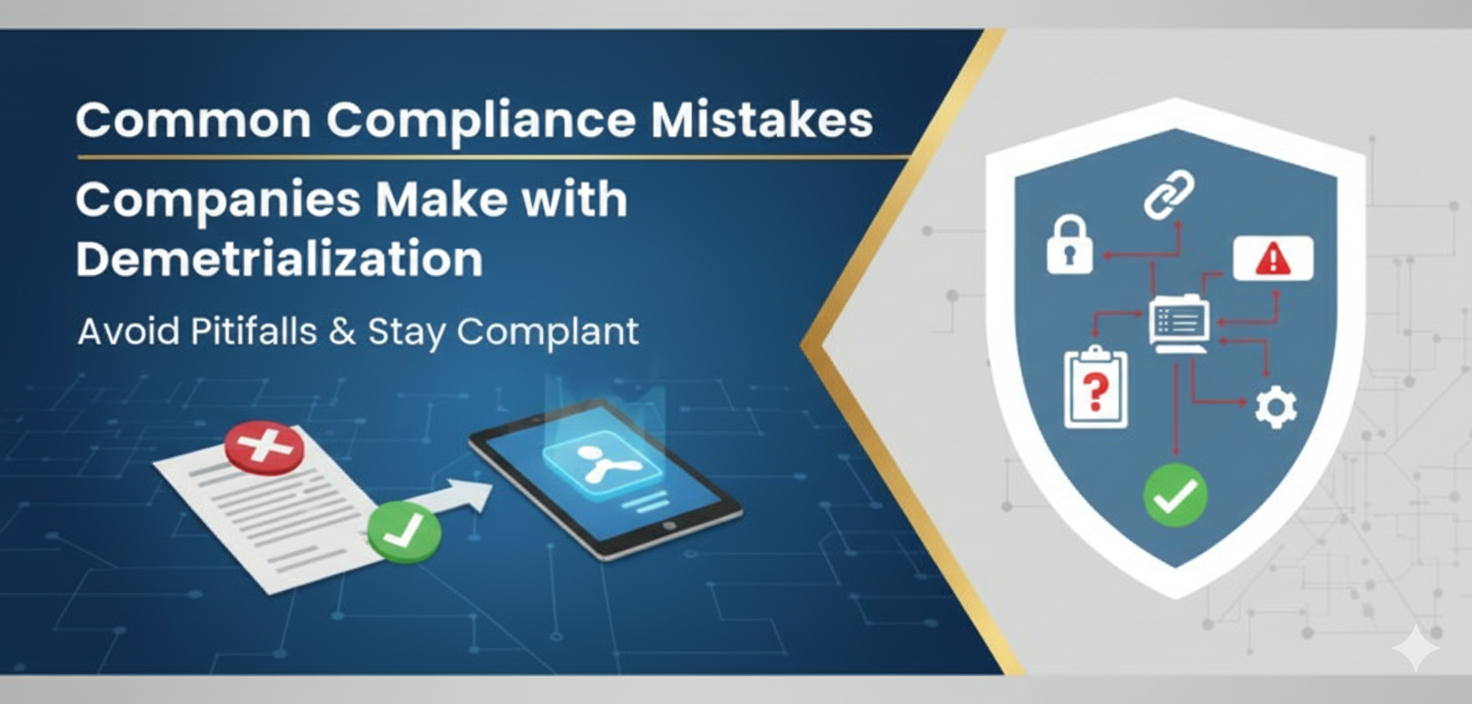Dematerialization touches multiple moving parts—ISIN creation, depository agreements, investor KYC, reconciliations, and periodic filings. Companies often underestimate timelines and dependencies, discovering risks only when a transfer, allotment, or corporate action gets blocked. Anticipating the usual pitfalls keeps both regulators and shareholders happy.
1) Waiting Too Long to Apply for ISIN
The ISIN is the gateway to everything else—without it, securities can’t sit in demat. ISIN activation needs company KYC, board approvals, and data validations. Leaving this for “later” compresses timelines and creates fire-drills before corporate actions.
• Problem: Transfers and allotments stall; AGMs and actions slip.
• Solution: Treat ISIN as Day-Zero. Initiate the process right after applicability is confirmed so all downstream steps can run on schedule.
2) Incorrect or Delayed Share Capital Reconciliation
Both listed and unlisted companies must periodically prove that their total issued capital matches the shares held with depositories and in physical form. For unlisted public companies, this is done via the half-yearly Form PAS-6. For listed companies, it's a quarterly reconciliation audit filed with stock exchanges under SEBI regulations. Common errors for both include data mismatches, wrong ISIN counts, or simply missing the filing deadline.
• Problem: Penalties, corrective filings, and regulator queries consume time and resources.
• Solution: Maintain a strict compliance calendar. Always reconcile depository balances with your RTA first, then file with accurate supporting data.
3) Poor Shareholder KYC Hygiene
Demat fails when an investor’s PAN, Aadhaar, bank details, or email are outdated or don't match DP records. Companies often focus on their internal steps and forget about investor readiness, leading to rejected demat requests and delayed payouts. Clean data is the lubricant of dematerialization.
• Problem: Rejections, bounced payouts, and frustrated shareholders.
• Solution: Run a periodic KYC refresh drive using reminders and standardized templates. Always validate data before initiating transfers or corporate actions.
4) Weak Coordination with the RTA
Assuming “the RTA will handle it” without a clear communication plan invites gaps. Corporate calendars for events like AGMs, rights issues, or bonuses need joint planning and timely data exchange. Without a regular cadence, critical tasks can slip through the cracks.
• Problem: Missed cut-offs and last-minute escalations.
• Solution: Set a single point of contact with your RTA, schedule regular check-ins, and use a shared tracker for deadlines and open items.
5) Treating Demat as a One-Time Project
Dematerialization isn’t “done” after the ISIN is active. It's an ongoing process involving reconciliations, IEPF monitoring, investor servicing, and action-specific workflows. Companies that consider it a one-off project face surprises later.
• Problem: Corporate actions fail readiness checks due to outdated records.
• Solution: Build a run-state playbook. This should include periodic reconciliations, IEPF watchlists, and pre-action readiness reviews with your RTA.
Conclusion
Demat compliance is an ongoing system, not a single event. Get your ISIN early, file reconciliations precisely, keep investor data clean, and coordinate with discipline. For a predictable, audit-ready run-state, Nextgen can anchor these workflows end-to-end as your RTA.
ABOUT NEXTGEN
At NextGen Share Registry, we specialize in ISIN generation for equities, preference shares, debentures, and AIFs with unmatched speed and accuracy. Our expertise extends to handling complex corporate actions and seamlessly organizing e-voting events for issuer companies, ensuring a hassle-free experience with the fastest turnaround time in the industry.

